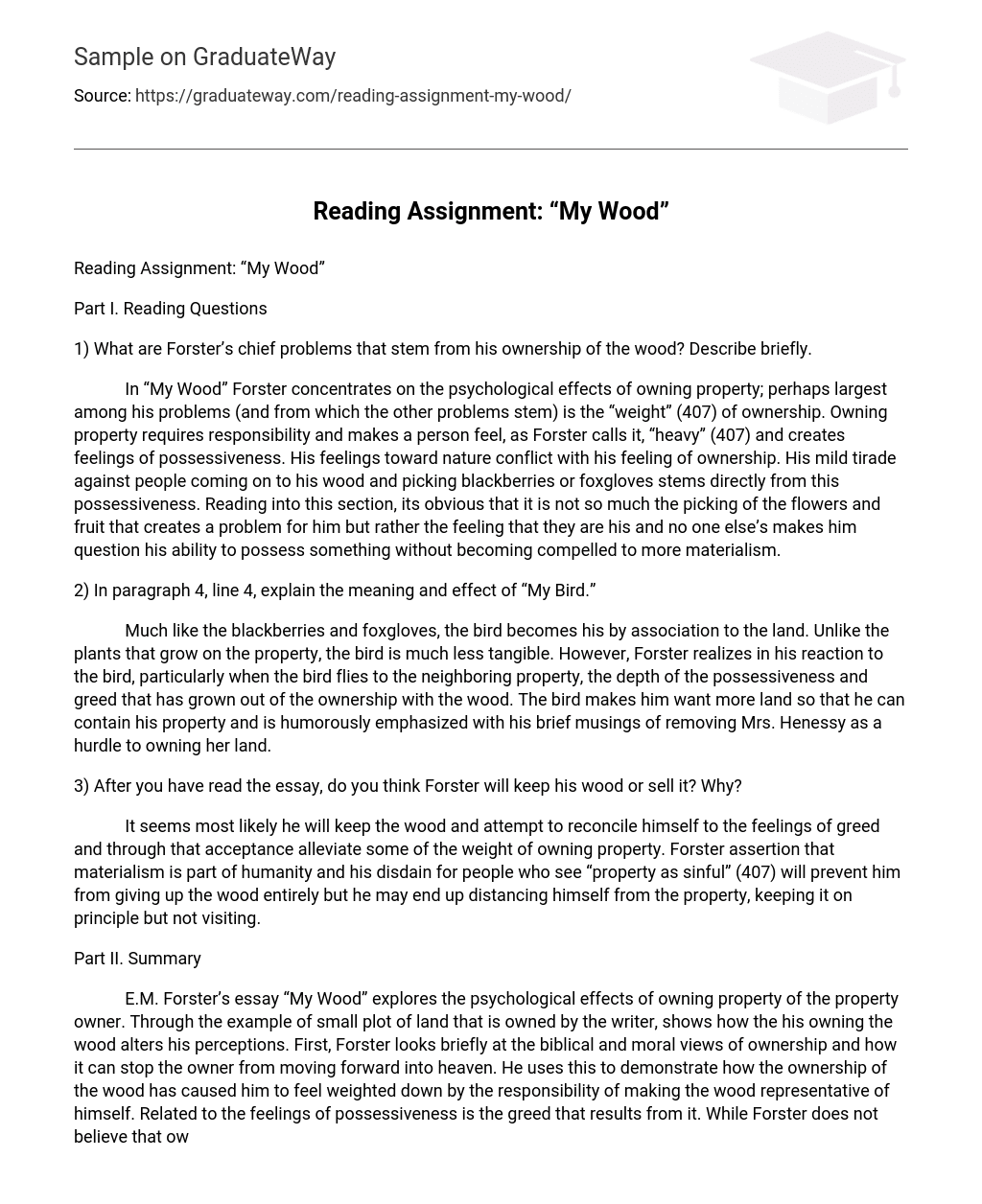Part I. Reading Questions
1) What are Forster’s chief problems that stem from his ownership of the wood? Describe briefly.
In “My Wood” Forster concentrates on the psychological effects of owning property; perhaps largest among his problems (and from which the other problems stem) is the “weight” (407) of ownership. Owning property requires responsibility and makes a person feel, as Forster calls it, “heavy” (407) and creates feelings of possessiveness. His feelings toward nature conflict with his feeling of ownership. His mild tirade against people coming on to his wood and picking blackberries or foxgloves stems directly from this possessiveness. Reading into this section, its obvious that it is not so much the picking of the flowers and fruit that creates a problem for him but rather the feeling that they are his and no one else’s makes him question his ability to possess something without becoming compelled to more materialism.
2) In paragraph 4, line 4, explain the meaning and effect of “My Bird.”
Much like the blackberries and foxgloves, the bird becomes his by association to the land. Unlike the plants that grow on the property, the bird is much less tangible. However, Forster realizes in his reaction to the bird, particularly when the bird flies to the neighboring property, the depth of the possessiveness and greed that has grown out of the ownership with the wood. The bird makes him want more land so that he can contain his property and is humorously emphasized with his brief musings of removing Mrs. Henessy as a hurdle to owning her land.
3) After you have read the essay, do you think Forster will keep his wood or sell it? Why?
It seems most likely he will keep the wood and attempt to reconcile himself to the feelings of greed and through that acceptance alleviate some of the weight of owning property. Forster assertion that materialism is part of humanity and his disdain for people who see “property as sinful” (407) will prevent him from giving up the wood entirely but he may end up distancing himself from the property, keeping it on principle but not visiting.
Part II. Summary
E.M. Forster’s essay “My Wood” explores the psychological effects of owning property of the property owner. Through the example of small plot of land that is owned by the writer, shows how the his owning the wood alters his perceptions. First, Forster looks briefly at the biblical and moral views of ownership and how it can stop the owner from moving forward into heaven. He uses this to demonstrate how the ownership of the wood has caused him to feel weighted down by the responsibility of making the wood representative of himself. Related to the feelings of possessiveness is the greed that results from it. While Forster does not believe that ownership/materialism is inherently a bad thing however he does explain his growing mentality of possessiveness which leads to greed. This greed that comes from ownership, in the form of wanting to possess the wildlife (birds, trees, blackberries and foxgloves) and keep the outside world from taking from the natural bounty of the wood. Through the essay he attempts to come to terms with these feelings and balance materialism with the realistic restrictions of owning property.





